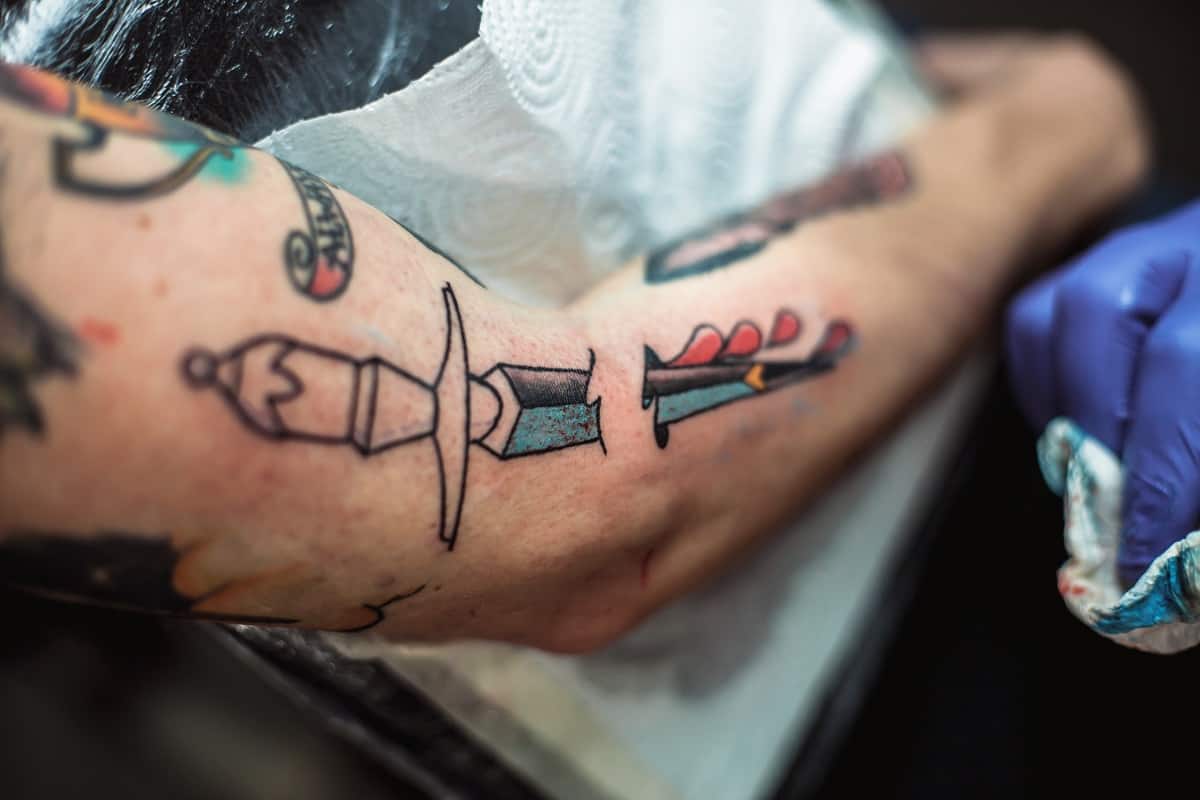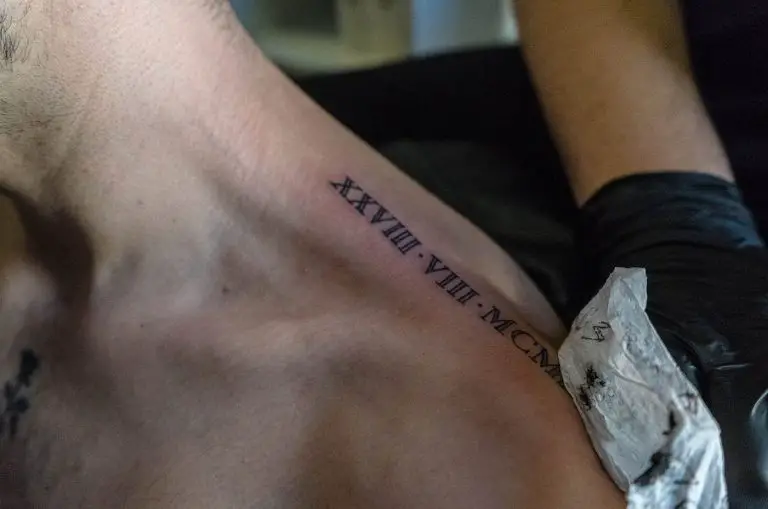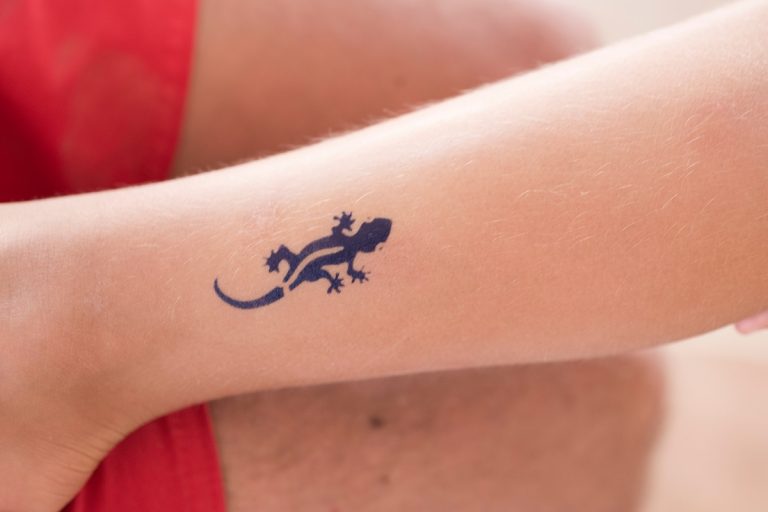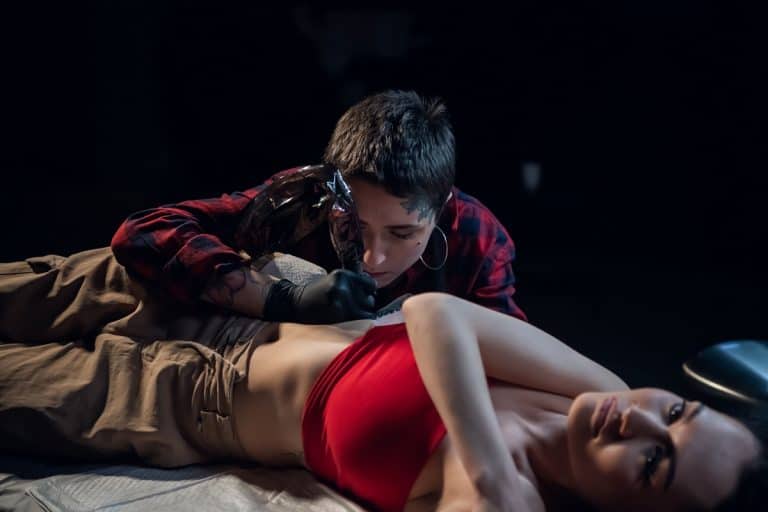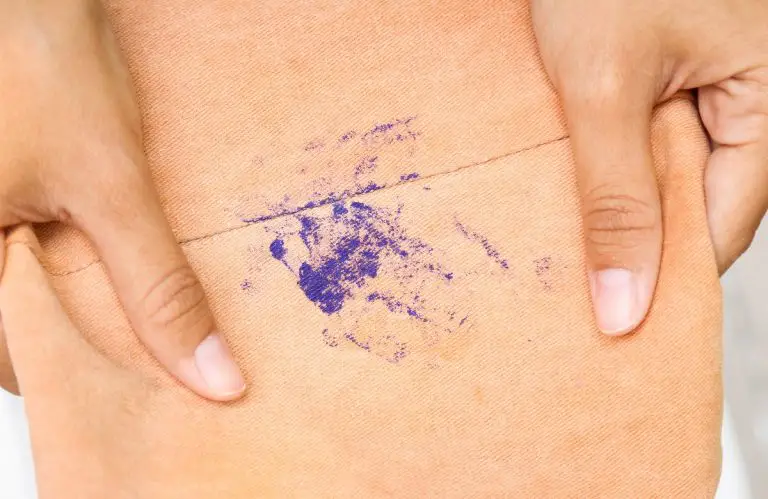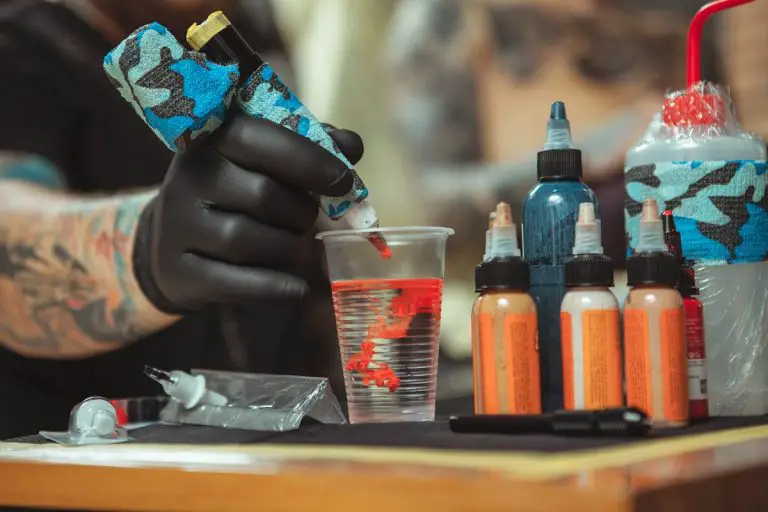Why Is My Tattoo Raised and Itchy?
After getting tattooed, it is perfectly normal to experience pain and discomfort. After all, you’re dealing with a type of open wound which needs time to properly heal. Now, the healing process is where the pain and discomfort should subside. Usually, the healing involves overall discomfort of itching, skin peeling, new skin layer forming, etc.
But, what happens when the pain continues, and the tattooed skin starts to raise, hurt and itch? Is that a common part of the healing process or a sign of trouble?
Well, that is why we’re here; to explore all the possible causes and reasons your skin is raised and itchy after you’ve gotten tattooed. So, without further ado, let’s get exploring and answering!
6 Reasons Your Tattoo Is Raised and Itchy
1. Tattoo Infection
Tattoo infections can appear anywhere between a few days and 2 to 3 weeks after you’ve been tattooed. The infection can occur for numerous reasons, including;
- Contaminated tattooing tools (tattoo gun, needle, etc.)
- Contaminated tattooing environment
- A reckless tattoo artist (working without gloves, using contaminated tools, not working in a cleaned and disinfected environment, etc.)
- Improper aftercare routine
- Use of petroleum-based products on the tattoo
- Sharing sleeping space with pets
- Not keeping the tattoo dry (taking baths, swimming, exercising, and sweating)
- Not wearing loose clothes (fabrics sticking to the tattoo)
These are some of the most common causes you could experience a tattoo infection. Alongside raised and itchy skin, symptoms of a tattoo infection also include redness, increased pain levels, swelling, rashing, oozing, and puss, as well as a fever.
If you experience any of the following symptoms, and you think you could have been exposed to any of the aforementioned situations and environment, make sure to seek medical attention as soon as possible. You’ll be prescribed antibiotics and proper treatment, so make sure to always talk to a medical professional.
2. Ink Allergy
This may come off as a surprise, but you could be allergic to tattoo ink and not know it. Unfortunately, one becomes aware of the allergy when it’s already too late; the tattoo has been done, and now you’re dealing with raised, painful and itchy tattoo.
Now, the ink allergy occurs for a few reasons, like;
- The ink has been contaminated – studies have shown that more than 10% of unopened ink bottles already contained harmful bacteria. Because ink is considered a cosmetics product, it can freely enter the marketplace without any regulation or ingredient check. There is no knowledge of whether the ink is completely, 100% safe until it’s too late.
- The ink contains toxic metals and plastic – because tattoo inks are not regulated, nor do they have displayed ingredients, many of the manufacturers used toxic metals and even plastic to improve the consistency and pigmentation of their product. This especially applies to yellow, green, red, and blue inks. These pigments are most allergenic, and the sources show that these inks generally contain harmful ingredients.
- You are generally allergic to ink – most of the time, even when tattooists use high-quality ink, people experience allergic reactions. The reasons for a general allergy can be numerous; from the tattoo ink ingredients to an immune response of your body to a foreign invader, in this case, the ink.
- Your tattoo has been exposed to sunlight – some ink allergies occur due to photosensitivity. Some inks, when exposed to bright lights, especially sunlight, tends to react mostly due to the ingredients in the ink. As a result, the skin becomes raised, red, and itchy, forming bumps and rashing. Yellow, blue, and red inks react with sunlight the most.
As you can tell, the majority of ink allergies occur as a result of unknown ink ingredients and the overall poor quality of the pigment itself. Unfortunately, apart from toxic metals and plastics, many inks contain dyes made from the same components used to create car paint or prints.
No tattoo ink is regulated by the FDA, so there is no insight into the components of tattoo ink in the USA. However, the ingredients found in ink, known to cause allergic reactions, include aluminum, manganese, cobalt aluminate and chloride, carbon or India ink, lead chromate, zinc oxide, and many others.
3. Skin Condition(s)
Skin conditions are some of the most common causes of a raised and itchy tattoo. Whether you have dry or sensitive skin, or you’re dealing with eczema and dermatitis, any kind of change on the skin can be considered a skin condition. Many people aren’t aware of this and think that if they simply have dry or sensitive skin, they’re good to go and get a tattoo.
It is essential to see a dermatologist and get your skin checked before a tattoo appointment. A dermatologist will provide a detailed insight into your skin’s status and condition, and clear you for tattooing if everything’s fine.
A dermatologist can even predict whether you could experience skin cancer in the future and recommend you do not get a tattoo. Ink can cover skin cancer symptoms and visible signs, which can be a severe problem on its own.
However, if you experience itching and raised skin after the tattooing process, you should go and check the issue with your dermatologist. They will check your skin type and possible conditions, study the itchiness, observe the skin swelling and provide adequate treatment.
4. Going Through an MRI
This may seem surprising to many, but getting an MRI while being tattooed can cause the tattoo to be raised and itchy. You may wonder why?
Well, remember when we said that inks contain metals? Such, metal-based ink can react during an MRI scan, due to the magnetic forces. Because metals from the skin are being pulled, the skin swells, and tattoos become raised, itchy, and even burning.
There was one particular case of a man going through an MRI and experiencing a second-degree burn because of the reaction between the ink and the magnetic resonance. His tattoos contained iron oxide, which is a metallic compound. The compound reacted with the electromagnetic waves, resulting in terrible burns.
So, if you’ve had an MRI scan, and soon after you start experiencing tattoo swelling and itching, chances are your ink has reacted with an MRI. Seek medical attention in that case and explain what has led you to such a state; you’ll get proper treatment and hopefully get better soon.
5. Weather Changes
As the seasons change, your tattoo may change as well. Even if it’s fully healed, your tattoo can become a bit raised and itchy due to irritations caused by temperature fluctuations, humidity rise, and similar occurrences.
For example, during summertime, you may experience slight swelling of the skin due to temperature changes. As a result, your tattooed skin may stretch a little bitch and cause irritation and itchiness. It is best to avoid scratching the skin, since you may damage the skin and introduce bacteria.
On the other hand, during wintertime, you may experience increased itchiness of the tattoo. That is because cold weather tends to irritate and dry out the skin. As a result, you may also experience rashes and skin peeling in extreme cases. It is best to keep the skin moisturized and protected from the cold during these times.
6. The Tattoo Is Simply Healing
If you’re dealing with a new tattoo and wondering about raising and itching, chances are your tattoo is simply going through a healing process. Because a new tattoo is actually an open wound, it is perfectly normal for the skin to raise and swell a bit.
As the swelling subsides, your tattoo will start to dry out as a part of the healing process. During the drying stage, it will start to itch and peel. This is a sign that the new skin layer is forming and the body is getting rid of the old, damaged skin layer.
If this is your case, then you must resist the urge to touch, scratch, and peel the tattoo. If you do, you may prolong the healing process, introduce bacteria and germs to the tattoo and unintentionally cause a tattoo infection.
You can simply try to keep the tattoo clean and hydrated. Moisturize it up to twice a day to relieve the itchiness and peeling.
If the swelling and itching persist for more than a few days, then talk to a medical professional and have your tattoo medically assessed. Chances are you’re dealing with an infection, which can be dealt with pretty easily via antibiotic treatment.
Final Thoughts
If your tattoo is raised and itchy, chances are there is something wrong. However, you should first determine whether your tattoo is in such a condition due to external factors or because it might be infected.
Either way, pay a visit to your doctor or a dermatologist and have a professional take a look. It is better to get your tattoo checked on time, then to risk serious infection and health issues. Hopefully, our insight was helpful and informative, but you still need a medical opinion to be 100% sure your skin and tattoo are okay.
Also Read: What Happens If You Scratch a Itchy Tattoo?
- Safe, non-toxic plant-based temporary tattoos made with 100% high-definition printing for a realistic look without the pain
- Easy to apply and remove - just stick for 20 seconds then take off
- Set includes 5 sheets with 17 fun, delicate designs like hearts, cats, smiles, suns, moons, and more
- Waterproof and long-lasting - stays on up to 2 weeks of wear
- Fashionable for women, men, girls and boys
- Place on arm, wrist, neck, leg, finger, waist, foot and more
- Great for parties, birthdays, and showing your unique style

